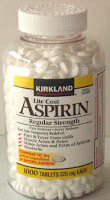In HER2 positive breast cancer, increasing the amount of HER2 protein found on the surface of tumor cells. This is known as’ HER2 Positivity. “High levels of HER2 found in malignant forms of this disease is much less respond to chemotherapy. Research shows that HER2 Positivity Affects approximately 20-30 percent of women with breast cancer.
HER2 positive breast cancer, which Affects approximately 20-30 percent of women with breast cancer, demands immediate attention because the tumor grew rapidly and likely to recur. These results provide the first evidence that adding a third in the first chemotherapy regimen most commonly used of Herceptin and taxane provide great additional benefits for patients with malignant forms of this disease. This drug combination was also generally well received. Approximately 25% of breast cancer patients who had HER2 + tumors. HER2 stands for human epidermal growth factor receptor. This is very important to know whether the cancer HER2 status. This is because the HER2 + tumors tend to grow and spread faster than tumors that are not HER2 +. In addition, treatment of HER2 + breast cancer is different from breast cancer treatment is not HER2
“Patients with HER2 positive breast cancer is usually advanced stage has a bad prognosis because their cancers are not always respond well to standard chemotherapy regiman,” said Dr Andrew Wardley, principal investigator of the study and Consultant Medical Hospital oncologist from Christie Hospital in England. “We must continue to assess the potential benefits of treatment and combination therapy treatment to find a better option for patients. These results show some Encouraging signs that triple combination therapy, and follow-up beyond this study and other studies will help us continue to investigate its potential. “
The HER2 proteins, also called the HER2 receptor, found on the surface of some normal cells in the body. In normal cells, HER2 proteins help send growth signals from outside the cell into the cell. These signals tell the cell to grow and divide.
In HER2 + breast cancer, cancer cells have abnormally high number of HER2 genes per cell. When this happens, too much HER2 protein appears on the surface of cancer cells are. It’s called too much HER2 protein. Too much HER2 protein is thought to cause the cancer cells grow and divide more quickly. This is why HER2 + breast cancer is considered aggressive.


